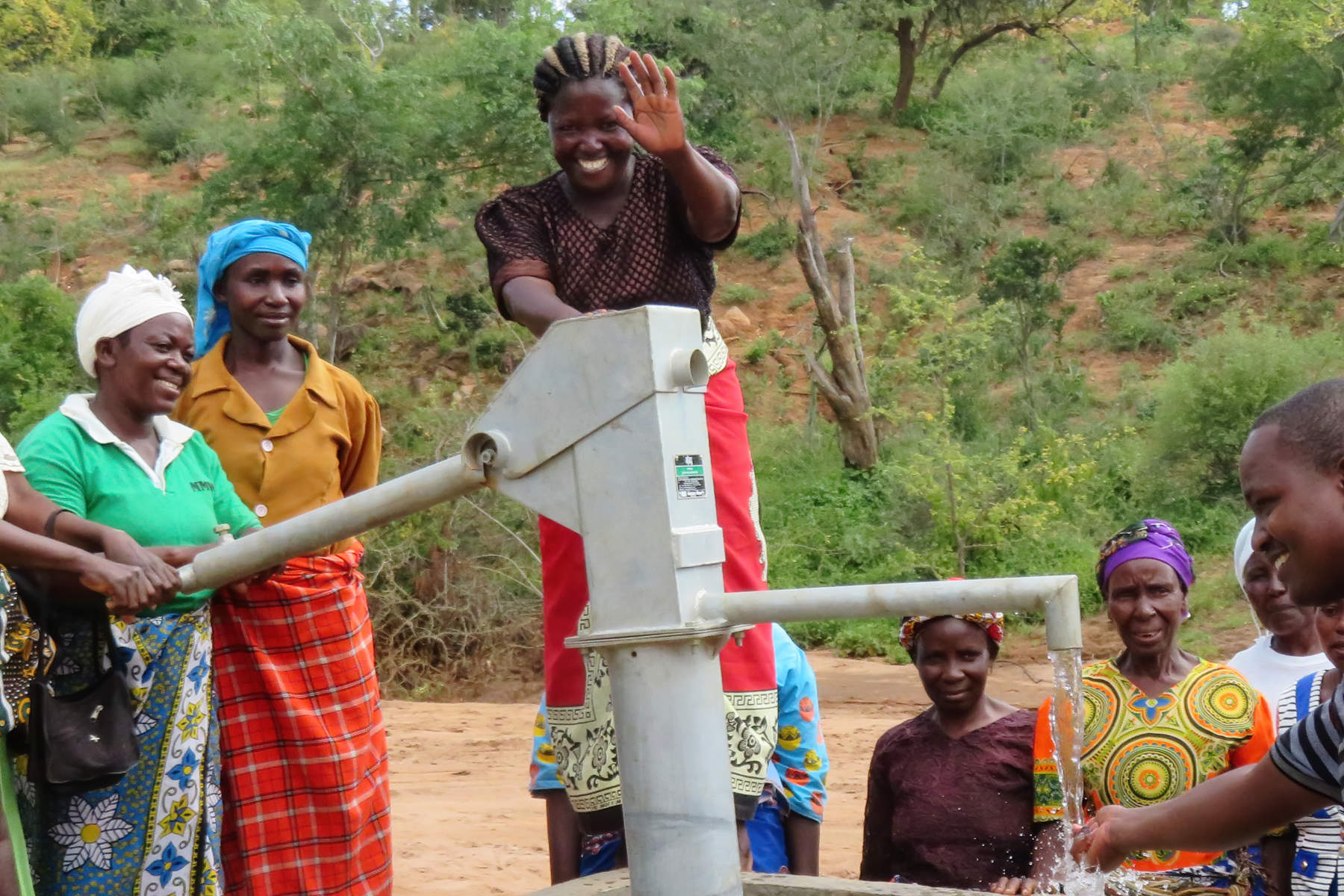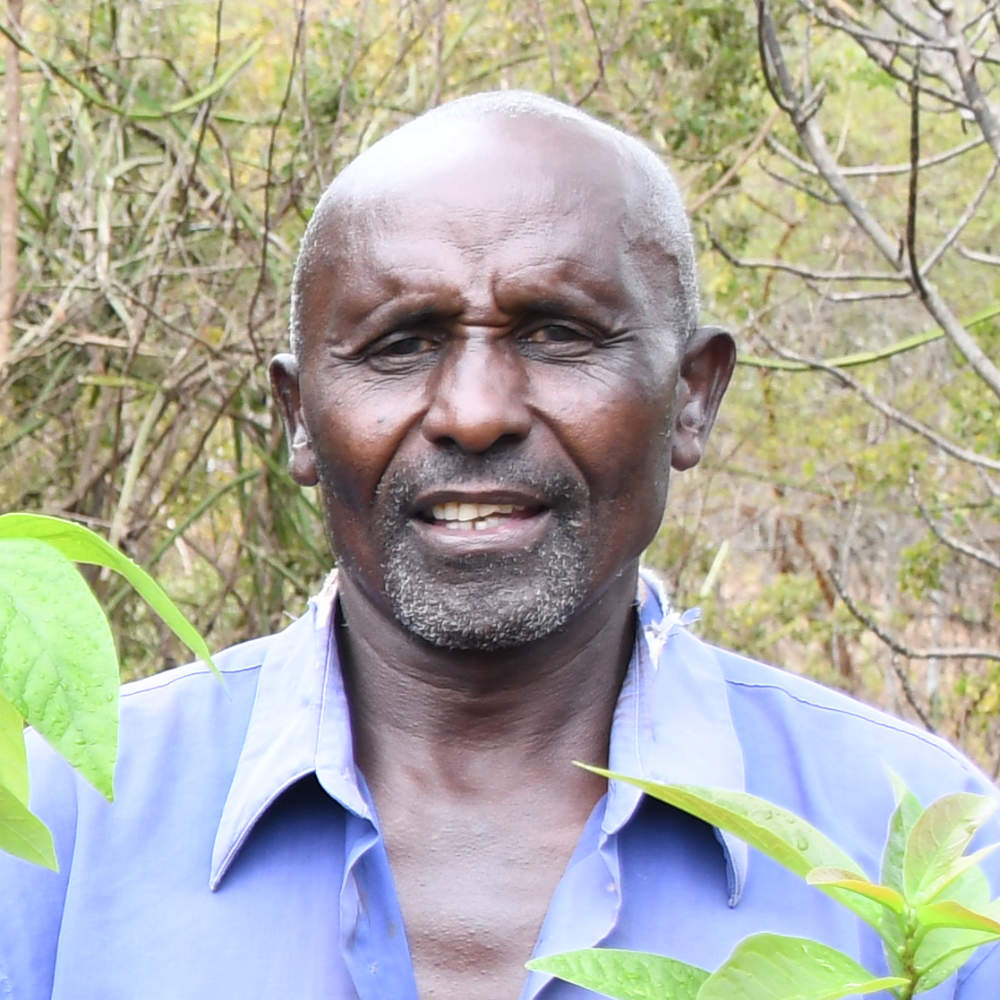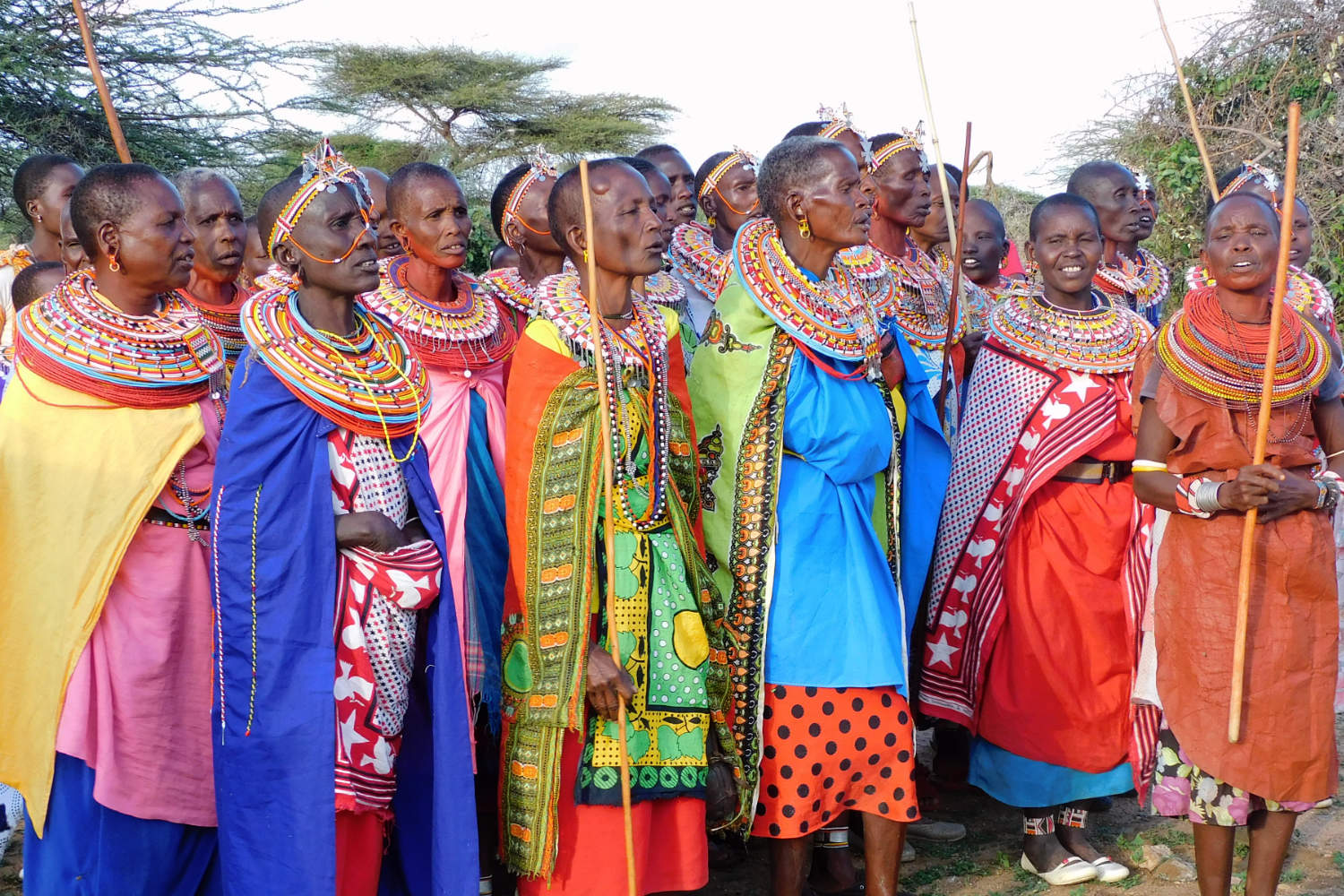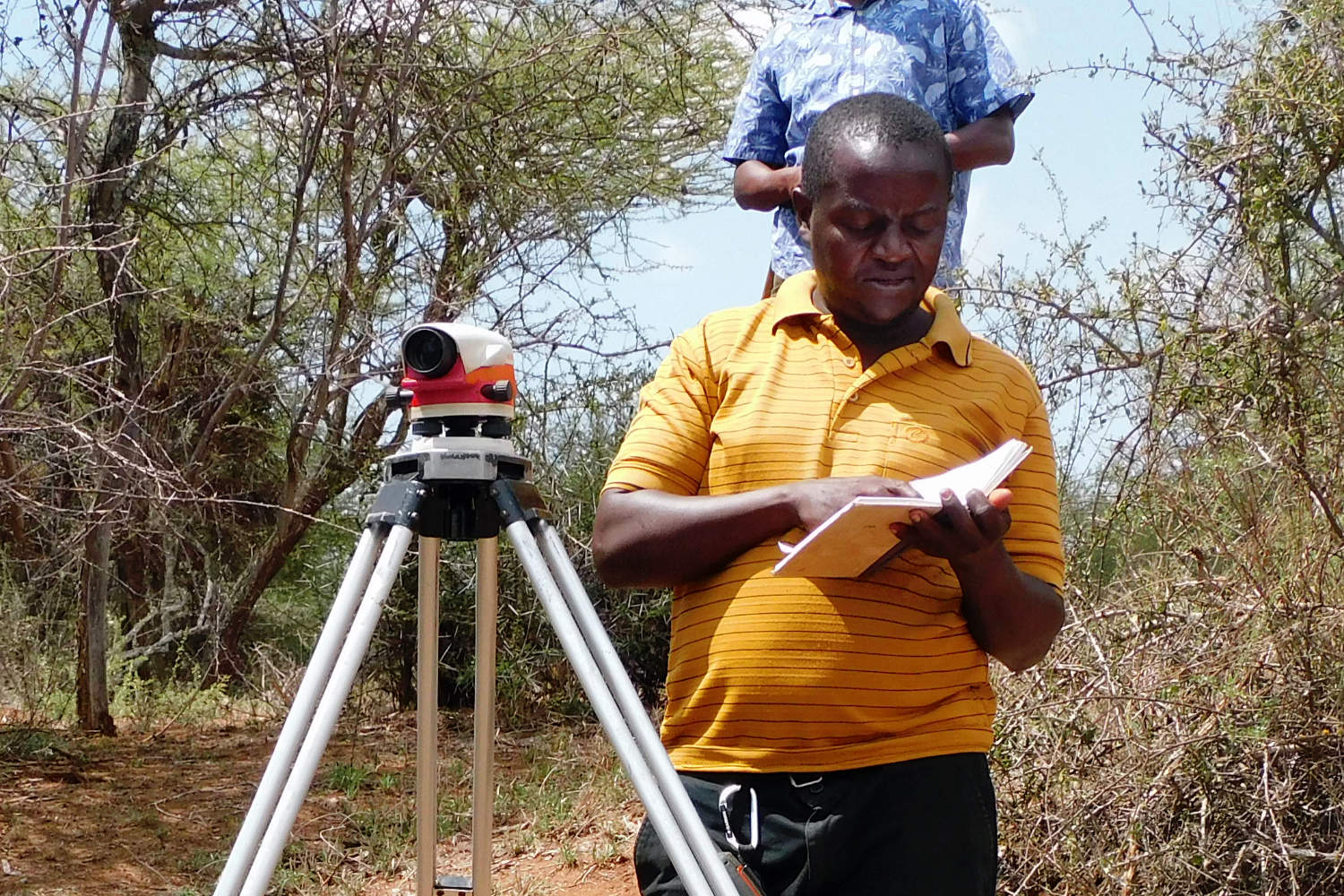Donate for this project
Four of our project villages are located in Laikipia district, twelve in Kitui, Machakos and Makueni districts in central Kenya. Here, deforestation, overgrazing and the rapidly advancing global warming have already driven desertification far ahead. The fertile topsoil is being eroded and water quality is declining. On average, the inhabitants of our project communities have access to water from rivers and streams for only eight months of the year, and some have to walk twelve kilometres to get it. Almost three quarters of the people earn their living exclusively from agriculture. The yields are barely enough for more than their own needs, and there is little left to sell. No wonder that the monthly income of these households is less than 5,000 Kenyan shillings - the equivalent of about 40 euros.
„Der Fluss führte nur zur Regenzeit Wasser, danach mussten wir sehr weit gehen, um Wasser zu holen. Die Leute haben tiefe Löcher gegraben, um an Wasser zu kommen, aber das ist gefährlich, weil man verschüttet werden kann. Außerdem machte das Wasser oft krank, Typhus und Amöbeninfektionen waren weitverbreitet."
Sand dams, vegetable fields and nurseries
68-year-old Nathan Musau belongs to the Natulenge Juu self-help group from one of our project villages. With high labour input, the group has built 3 sand dams with shallow wells in only 8 months, which now provide around 3,000 villagers with clean water all year round. On their jointly created demonstration plots, the group members have successfully tested the cultivation of tomatoes, spinach and kale, which they sell for a profit. The proceeds are invested in other Natulenge Juu projects. Over 700 seedlings are currently growing in three nurseries, including avocados, mangoes and acacias. "Since we can irrigate them," says Nathan Musau, "hopefully many of them will survive and improve our environment." How important trees are for climate, soil and water, and how to raise them, Nathan learned with many other farmers in the project's workshops. There they were also introduced to sustainable methods of tilling the soil and growing crops, and learned how to reduce wood consumption with energy-saving cookers and eco-briquettes. "These trainings have really helped us a lot," Nathan Musau emphasises. "And the water from our sand dams will benefit many generations to come."
More than livestock
In Laikipia, most households make their meagre living from natural grazing. But drought, disease and the long journeys to water in the dry season cost many of their goats, sheep, cows and chickens their lives. A Maasai women's group and three farming groups, a total of 180 people, are now putting their lives on a new footing with the help of our project: after they too have built sand dams, they are cultivating aloe secundiflora on their communal plots and in their home gardens. The leaves of this plant provide a sought-after ingredient for the cosmetics industry and are sold with the help of the project, for example, to Lush Cosmetics, a producer of natural cosmetics in the UK. The women also learn to produce their own shampoo, shower gel, body cream and hand sanitizer, which they can sell locally. Aloe cultivation and marketing are an important building block for environmentally sustainable agriculture, which can generate a living wage even under changing climate conditions.
Stronger together
What is new in this project is that we are linking two of our local partner organisations: the African Sand Dam Foundation (ASDF), a Kenyan non-governmental organisation with which we have been working since 2012, and Laikipia Permaculture Centre Trust (LPCT). For example, the sand dam specialist ASDF teaches people from LPCT what to look for in the siting, design, planning and implementation of sand dam projects. During the construction work in Laikipia, ASDF's experienced technical staff help to put what they have learned into practice properly. LPCT brings its expertise in supporting communities to develop self-sustaining, sustainable agriculture. Among other things, the organisation provides the communities with aloe seedlings and takes care of the marketing of the leaves. Together, we are all pursuing the same goal: bringing water to the driest villages in Kenya and finding solutions to help people there secure their livelihoods and preserve their natural environment.
















